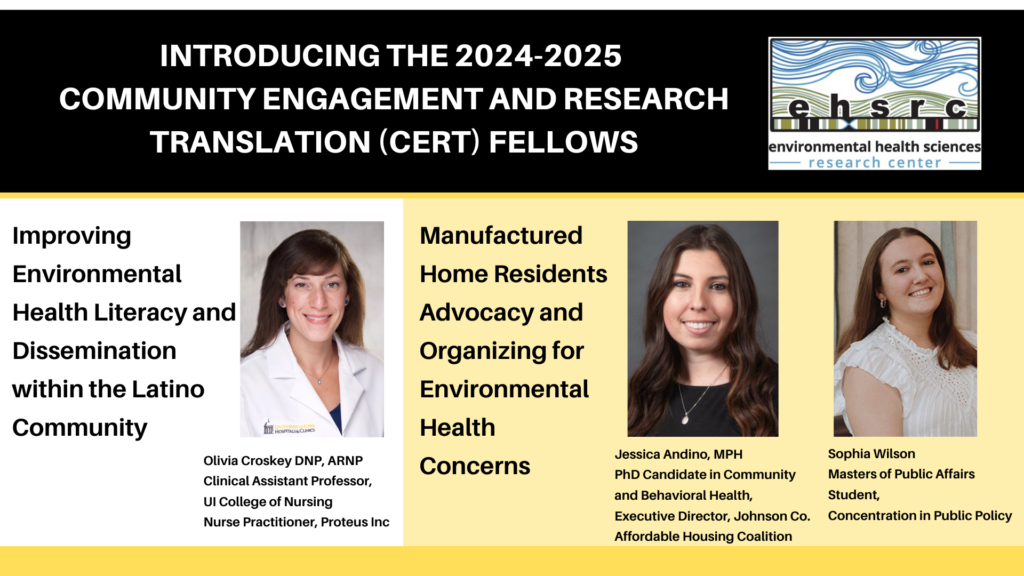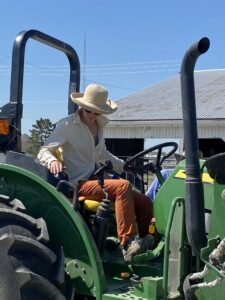 The EHSRC has released a new fact sheet detailing its role in environmental health sciences research aimed at protecting Iowans’ health. Funded by the National Institute of Environmental Health Sciences, the EHSRC is the only environmental health research center in the Great Plains/Midwest region. We focus on pressing state and regional issues including:
The EHSRC has released a new fact sheet detailing its role in environmental health sciences research aimed at protecting Iowans’ health. Funded by the National Institute of Environmental Health Sciences, the EHSRC is the only environmental health research center in the Great Plains/Midwest region. We focus on pressing state and regional issues including:
- Protecting people from naturally occurring carcinogens like radon and arsenic
- Keeping farmers healthy by controlling exposure to dust, fumes, and pesticides
- Helping people with lung disease adapt to extreme weather and floods
Click here to view the fact sheet
Environmental health sciences research is an economic powerhouse in Iowa, with $2.38 in economic activity for every dollar invested. The economic benefits from EHSRC include:
- $64.6 M in economic activity generated since 2007
- Over 100 patents by EHSRC researchers since 2007
- $9 in additional grants awarded for each $1 invested in our Pilot Grants
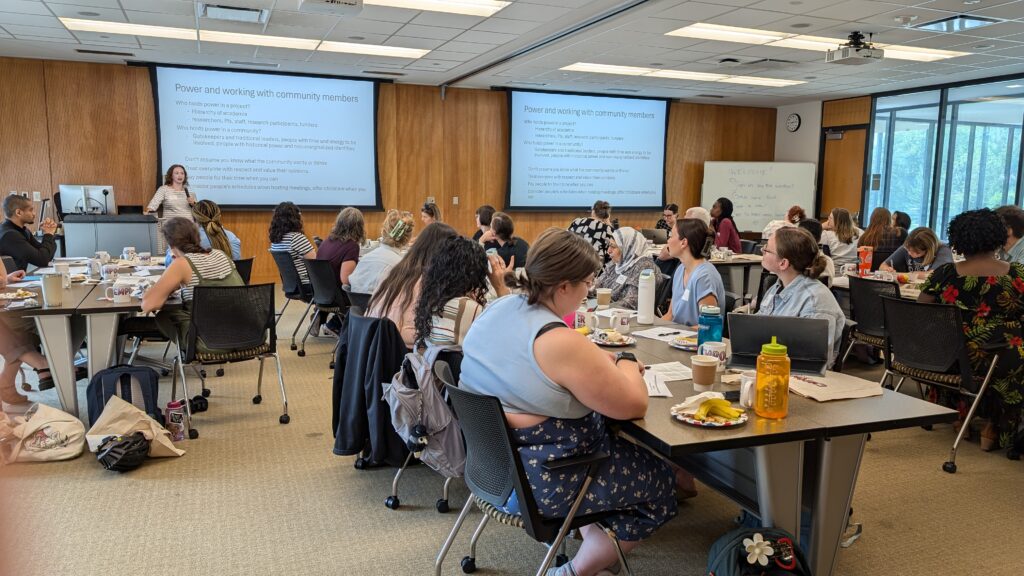
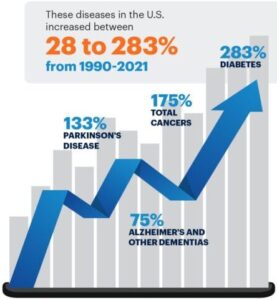 Chronic diseases including cancer, diabetes, Parkinson’s Disease, chronic respiratory disease, and childhood neurodevelopmental disorders have increased dramatically in the United States over the past few decades. Research shows that these diseases are linked to environmental factors such as air pollution, microplastics, and harmful chemical exposures.
Chronic diseases including cancer, diabetes, Parkinson’s Disease, chronic respiratory disease, and childhood neurodevelopmental disorders have increased dramatically in the United States over the past few decades. Research shows that these diseases are linked to environmental factors such as air pollution, microplastics, and harmful chemical exposures.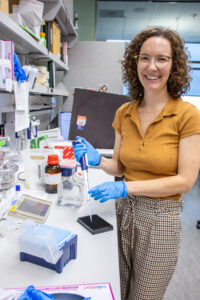 NIEHS is at the forefront of conducting research that protects public health by revealing how environmental factors impact health and disease and supporting communities in responding to environmental disasters such as chemical spills and extreme weather events like hurricanes. NIEHS P30 environmental health research centers are at the core of this mission by advancing scientific understanding, addressing emerging public health threats, improving community health, and reducing health care costs.
NIEHS is at the forefront of conducting research that protects public health by revealing how environmental factors impact health and disease and supporting communities in responding to environmental disasters such as chemical spills and extreme weather events like hurricanes. NIEHS P30 environmental health research centers are at the core of this mission by advancing scientific understanding, addressing emerging public health threats, improving community health, and reducing health care costs.